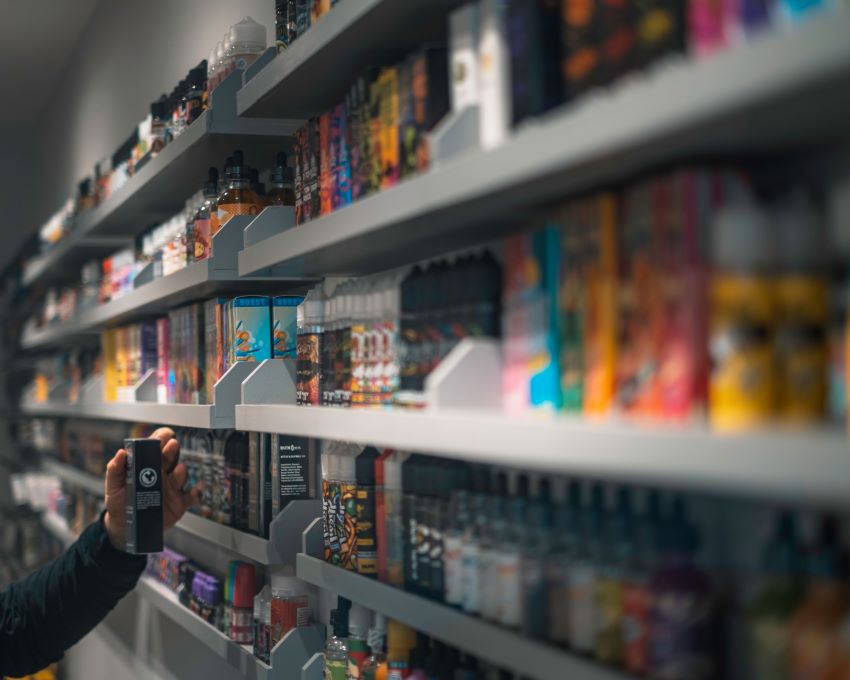
New research revealing vape stores are located strategically close to schools is the latest blow to an industry accused of exploiting children and young people for profit.
Researchers at the University of Notre Dame Australia found that nearly 90 per cent of the 194 vape stores they identified in Western Australia are located within one kilometre of a school and 39 per cent located 500 metres from a school.
Twenty-nine per cent of schools in Perth and 35 per cent of schools in regional WA centres had at least one store located within one kilometre.
The audit of dedicated vape stores in Western Australia by researchers was published on 30 January by the Australian and New Zealand Journal of Public Health. It came as the Federal Department of Health and Aged Care released figures showing a 30 per cent annual rise in the percentage of people beginning vaping, with the fastest growth among 18-24 year olds.
Last December the largest national survey on youth drug and alcohol use found a surge in vape use among students in years 7 to 12 from 13.5 per cent in 2017 to 29.9 per cent throughout 2022-23.
Public health concerns are growing as many e-cigarettes labelled as nicotine-free have been found to contain higher levels of nicotine than regular cigarettes, plus other toxins, and evidence is growing that non-nicotine vaping use is a gateway to future tobacco addiction.
UNDA study co-author Professor Lisa Wood from Notre Dame’s Institute for Health Research said the findings were timely as students were returning to school and the Federal Government tightens regulations including a ban from 1 January on imports of disposable vapes, many containing sweet flavourings and with bright, youth-focused packaging.
She told the Catholic Weekly the vaping epidemic has been a “nightmare” for parents, schools, and young people themselves.
“We have to make it seem far less acceptable, which is what we achieved with tobacco but a lot of that work has been reversed by the rise of vapes,” she said. “The reality is that we are up against the tobacco industry which has invested in many of the vape companies and has a long history of finding loopholes around things or to reinvent their products.
“So there’ll be industry opposition, but it’s an industry that’s chosen to peddle a product that is known to be harmful and to create addiction. I’m really proud to be part of a university that is so supportive of this research that may ruffle some feathers but is an issue of social justice as part of public health.”
The report authors noted that the clustering of vape stores around schools “may increase young people’s access and exposure to promotional signage.”
“The role that ‘brick and mortar’ vape stores play in normalising e-cigarette use, particularly amongst youth of 10, 11, 12 cannot be overstated,” they said. “This normalisation plays out through stores explicitly referring to vaping in their names, promotions and prominent signage on shop fronts.
“Given that many students walk to and from school or pass nearby retail outlets enroute to school, the finding that most WA vape stores audited are located within one kilometre of a school amplifies community concerns about youth vaping.”
The study also found that in metropolitan WA, vape stores were concentrated in the most socially-disadvantaged areas “mirroring the pattern observed globally for tobacco outlets.”
Authors called for early action to reduce e-cigarette availability through strong regulatory and compliance measures that target the supply of non-therapeutic vapes.
The New South Wales Government also launched a new education campaign on 30 January highlighting the experiences of people aged 14-24 who have been harmed from vaping.
“We have an opportunity to stem the tide of another emerging public health crisis that could have a lasting impact for generations of young people to come,” said Minister for Heath Ryan Park. “Tragically, over the last few years, we’ve seen big tobaccos plan start to work with huge numbers of young Australian kids and young Australian adults vaping on a very regular basis and becoming addicted to nicotine.”
Federal Minister for Health and Aged Care Mark Butler also took aim last month at “big tobacco’s plan to recruit a new generation to nicotine addiction.”
